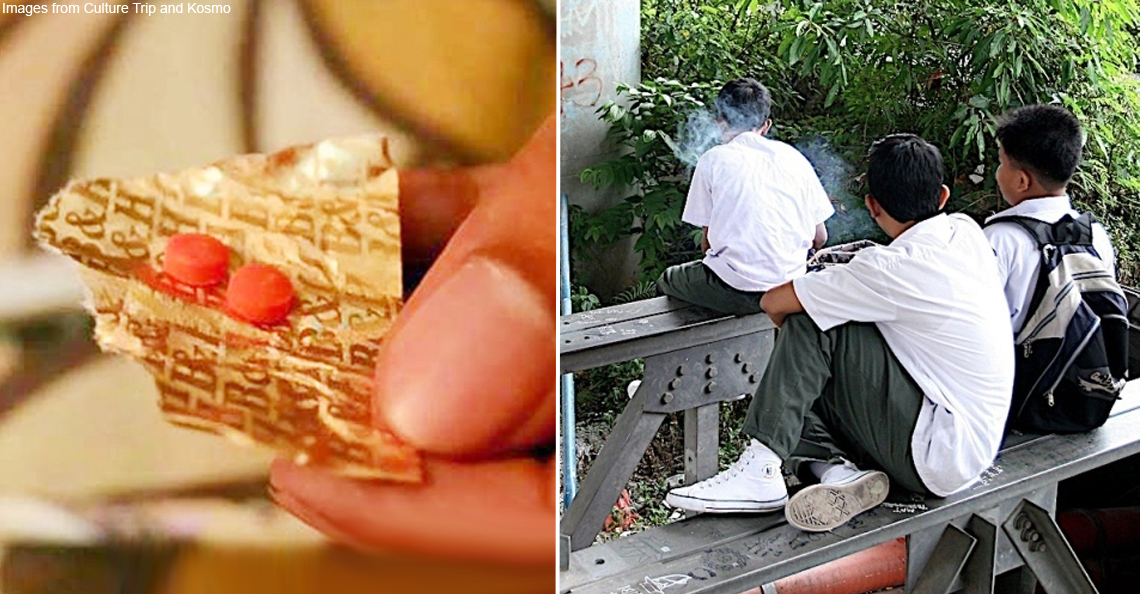Ganja is illegal in Malaysia, but CBD oils are being sold online. What’s the difference?
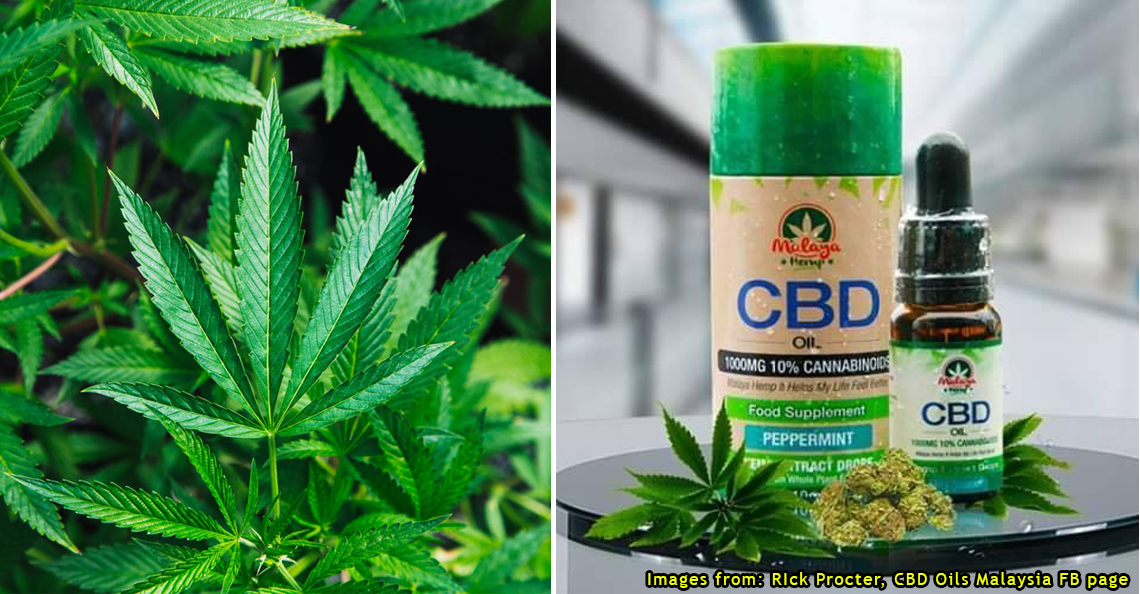
- 1.3KShares
- Facebook1.0K
- Twitter7
- LinkedIn21
- Email28
- WhatsApp152
[This article was originally written in November 2019, and had since been updated to reflect current events.]
[UPDATE 18 Jul 2022: Recently, the Health Ministry had announced that they will be allowing the use of several medicine containing cannabidiol (CBD) next year. According to Khairy Jamaluddin, this decision was done after preliminary studies found that it might help patients with certain conditions. However, he had stressed that CBD products will only be available for medical purposes and obtained through prescription.
“When we bring in CBD, it won’t be available over the counter. It must only be prescription. Once we have the products here, the doctors should already know how to administer it. There’s no point for us to approve licenses to bring in CBD when doctors have no clue how to prescribe them. That’s what will take a bit of time. So next year as an estimate is realistic,” – Khairy Jamaluddin, translated from Utusan.
KJ had also added that the approval had not needed to go through any Parliamentary acts or approvals. END OF UPDATE.]
Back in 2019, our then Health Ministry announced that it would allow the cultivation of industrial hemp (a non-psychoactive strain of the cannabis plant) for the production of fibre and seeds solely for commercial purposes.
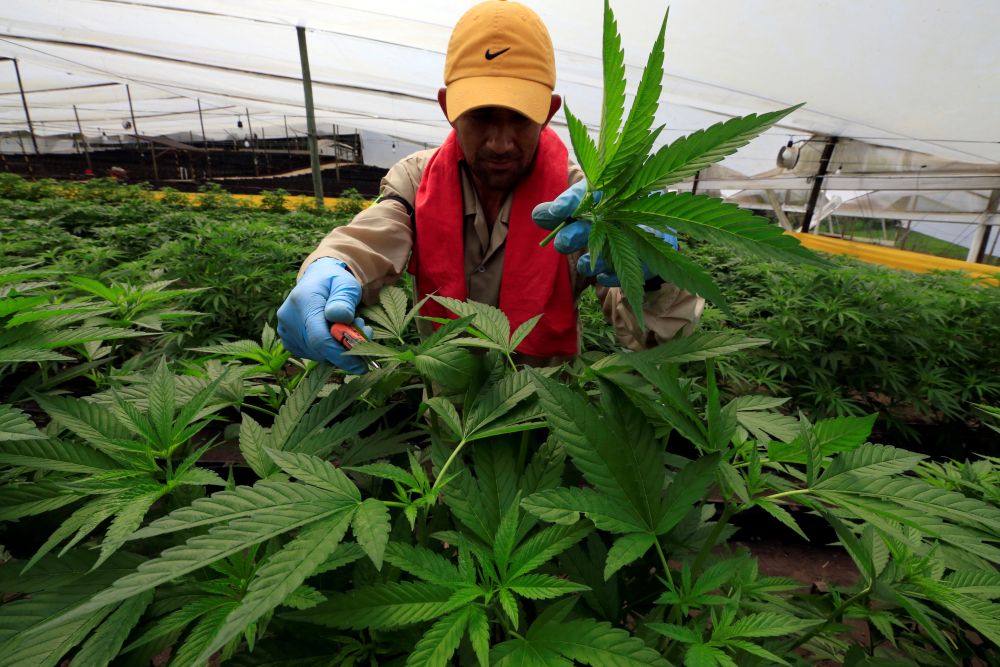
While the date for said cultivation is yet to be announced, this move could be pretty significant as hemp could soon replace palm oil as Malaysia’s main agricultural resource. Hemp is far more sustainable compared to palm oil, and has already received positive feedback from the then Ministry of Agriculture.
However, as mentioned earlier, hemp is a product of the cannabis plant, which, as we all know, is illegal in Malaysia. In fact, being in possession of a cannabis plant is punishable here by life imprisonment AND whipping of not less than six strokes.
But has the government now made a distinction between hemp and marijuana/ganja, despite the fact that they come from the same plant? Also, given that hemp CBD oils have already put Malaysia on the map and are marketed openly online (with ganja leaf art, no less), are such products actually legal here?
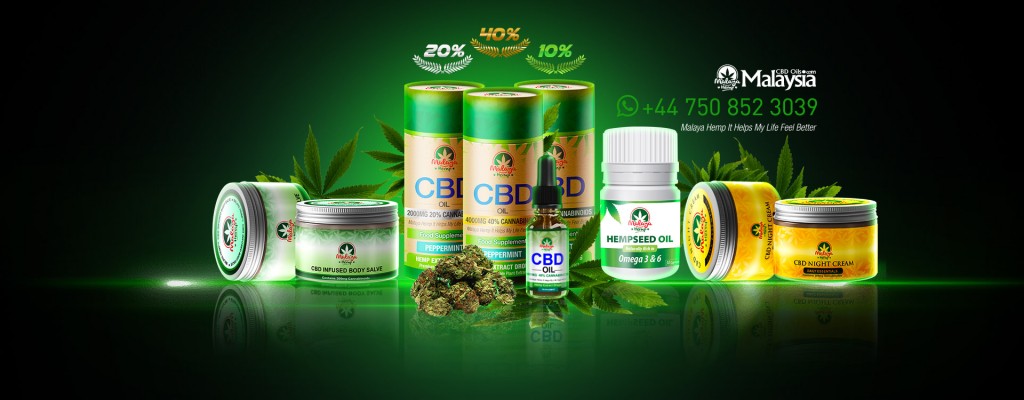
Although different plants, Malaysian law treats both hemp and marijuana the same
Before discussing the issue any further, it’s first important to understand the main differences between hemp and marijuana:

As can be seen from the chart above, the main elements that differentiate between the two are the amounts of THC (delta-9-tetrahydrocannabinol), and CBD (cannabidiol) compounds within the plant. THC, as mentioned above, is the psychoactive compound that makes you high, while CBD is the non-psychoactive stuff that doesn’t make you high, but has tons of medicinal uses (including for pain relief, anxiety, depression, cancer, diabetes, seizures, and many more).
So TL;DR:
- Marijuana – higher THC, lower CBD
- Hemp – little THC, higher CBD
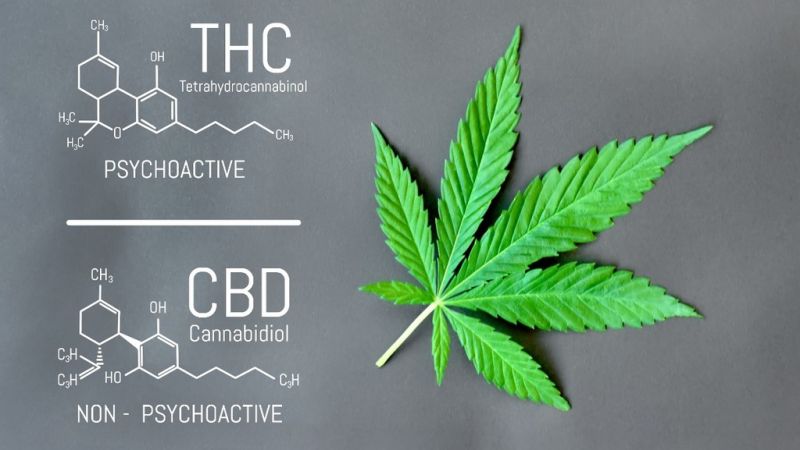
While US law makes the distinction between the two based on the criteria listed in the chart above, this distinction does NOT exist in Malaysian law: Section 6B(1)(b) of the Dangerous Drugs Act 1952 says:
(1) No person shall—
(b) allow any plant, from which raw opium, coca leaves, poppy-straw or cannabis may be obtained either directly or indirectly, to be planted or cultivated by some other person on land owned or occupied by him or in any receptacle on such land…
Having said that, cultivating cannabis plants for medicinal/research purposes is allowed provided prior permission is obtained from the Health Ministry (although this has yet to happen).
Additionally, the legal status of the compounds THC and CBD on their own differ somewhat in Malaysian drug laws: THC is listed as a ‘dangerous drug’ under Part III of the First Schedule of the Dangerous Drugs Act 1952, while CBD on its own is not listed anywhere in the same act.
So what exactly is hemp, and why did it become illegal?
Here’s a fun fact: hemp has been cultivated for centuries, and is possibly the first crop ever cultivated by mankind.
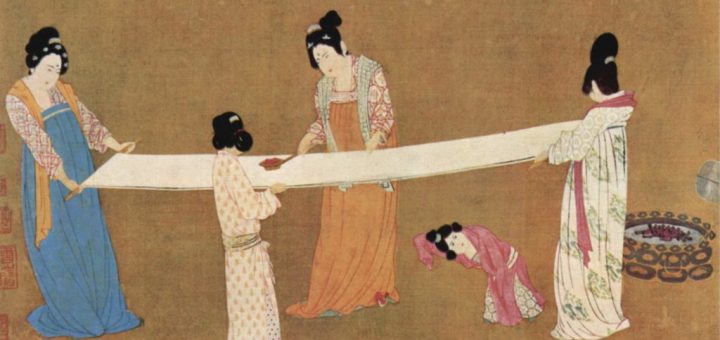
Originating in Central Asia, its use for fibre was recorded in China as early as 2800 BCE, and there are also records of hemp being used there to treat pain in 2900 BCE. It later spread to the rest of Europe during the Middle Ages, and eventually the Americas in the 1500s.
Hemp’s uses were (and still are) plentiful. It produces a strong and durable material, and is often used to make paper, ropes, sponges, canvases, fabrics, fuel, and lots, lots more. In fact, hemp was so significant in ancient Asian culture that Taoists even have a hemp goddess named Magu.
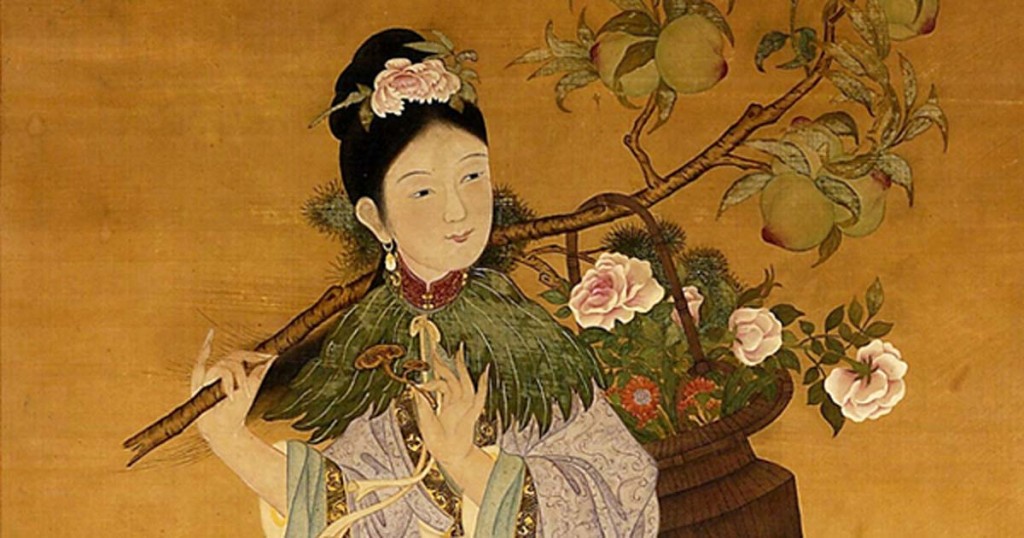
The usefulness of hemp begs the question: why did it become illegal in the first place? Well, back in an age when we didn’t understand the plant as we do today, cannabis and its products (including hashish and hemp) were equated to opium after the International Opium Convention in 1925, and many nations banned it as a result.
But arguably the most aggressive anti-cannabis/hemp movement happened in the United States. Harry Anslinger, director of the Federal Bureau of Narcotics led a racism-based smear campaign in the 1930s to demonise the cannabis plant:
“There are 100,000 total marijuana smokers in the US, and most are Negroes, Hispanics, Filipinos, and entertainers. Their Satanic music, jazz, and swing, result from marijuana use. This marijuana causes white women to seek sexual relations with Negroes, entertainers, and any others.” – quote from the Federal Bureau of Narcotics
Anslinger’s campaign was a success, and eventually led to the signing of the Marihuana Tax Act of 1937, which Anslinger himself personally drafted. While it didn’t outright criminalise marijuana/hemp, this new tax heavily discouraged hemp production in the US.
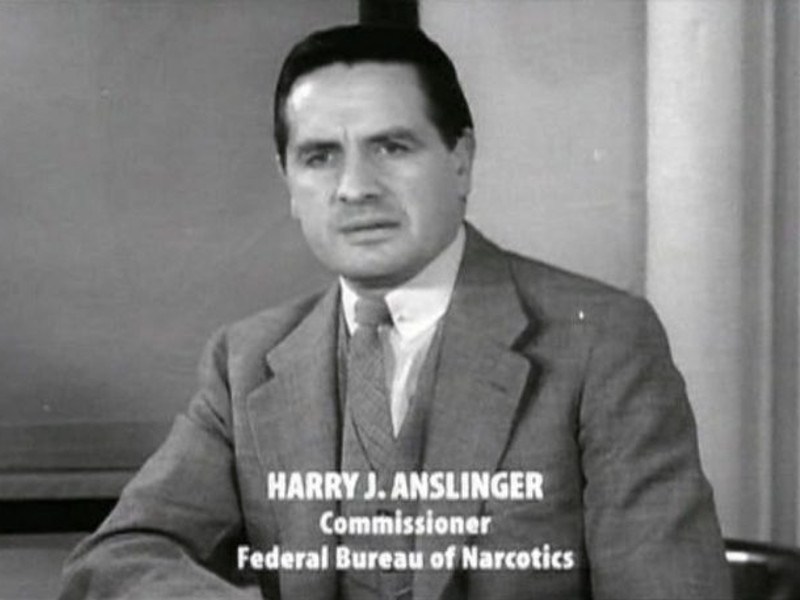
In the 1960s, the Nixon administration used a similar smear strategy (allegedly with the same racial intent, as claimed by his former aide), and all cannabis varieties, including hemp, officially became illegal for any use after the Controlled Substances Act was signed into law by President Nixon.
But even so, the many uses of industrial hemp throughout the years were undeniable; President Roosevelt actually encouraged the planting of hemp for industrial use during WWII. In fact, the parachute that saved George Bush Sr.’s life in the war was made from hemp!
While hemp is now legal in the US under the 2014 Agricultural Act, we are still catching up: in Malaysia, hemp/cannabis (or ‘bhang’, as it was then known) was first taxed by the British in 1826, before they made it illegal in 1952. And it remains so to this day.
However, in places where it is legal, there are Malaysians thriving off hemp products
So yeah, some of us have probably seen the Facebook ads by a certain company named CBD Oils Malaysia – Malaya Hemp (a UK-based, Malaysian-founded hemp oil company) marketing medicinal CBD oils online using ganja leaf art, such as the one we displayed at the beginning of this article.
While they’ve achieved tremendous success overseas and helped countless people (as the various testimonies on their Facebook page show), are their products actually considered legal here?
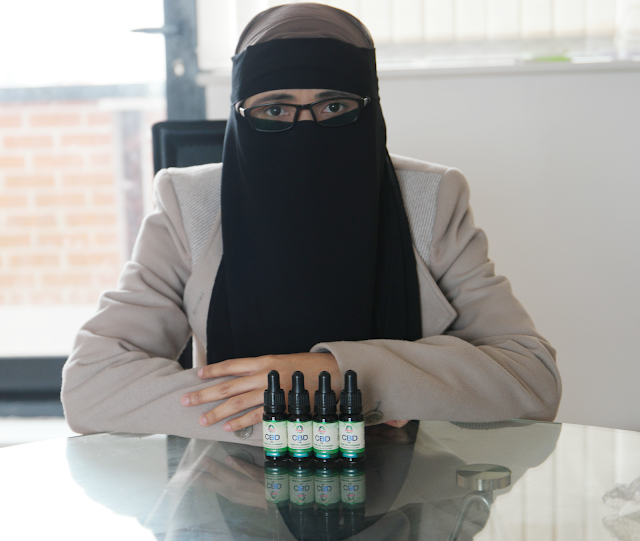
The answer is yes, but only with permission from the Malaysian government. The tricky part is getting that permission in the first place: potential sellers have to obey strict rules, as well as provide scientific evidence on the safety and effectiveness of their product. So yes, the sale of cannabis products is completely legal, as long as the seller is registered with the government (although, growing and owning the plant itself without a permit is still illegal. Sorry, stoners).
With that being said, CBD Oils – Malaya Hemp does not actually officially sell its products in Malaysia (as far as we can confirm), nor are they affiliated with the Malaysian government, as claimed by the company themselves on their website:
- 1.3KShares
- Facebook1.0K
- Twitter7
- LinkedIn21
- Email28
- WhatsApp152


